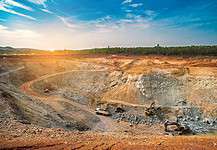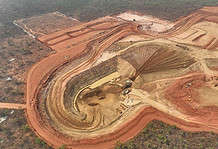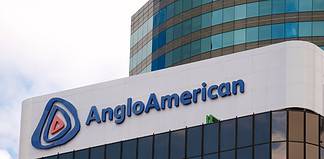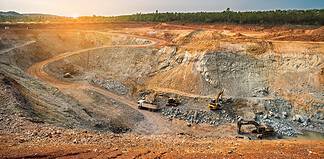Just six years ago BHP was looking to offload its Western Australian nickel business amid plummeting prices and escalating costs.
In 2014 the mining giant announced plans to sell Nickel West so it could focus on its key iron ore, copper, coal and petroleum assets.
In the end it decided to keep the operation in its portfolio as a “non-core” asset, but only because it failed to find a buyer at a suitable price.
How times have changed.
BHP is now rapidly gearing up to become one of the world’s leading nickel suppliers in the batteries sector as it positions Nickel West to feed the electric vehicle “revolution”.
There have been several reports of BHP being in talks with electric vehicle titan Tesla over a major supply deal, after owner Elon Musk called for miners to ramp up production of clean nickel.
Mr Musk said in July that “a giant contract for a long period of time” was on the table for a miner who produced nickel in an efficient and environmentally sensitive manner.
It was almost as if Nickel West Asset President Eddy Haegel was responding directly to Mr Musk’s appeal when he spoke at the Diggers and Dealers conference in Kalgoorlie in October.
“At Tesla’s recent battery day, Elon Musk flagged the enormous demand that will come for nickel as this decade unfolds,” Mr Haegel said.
“His call for nickel miners to grow quickly offers real evidence of the place nickel has as a strategic battery metal going forward.
“Nickel West is well positioned to benefit from this anticipated growth.
“Last year, we sold around 70% of our nickel to battery manufacturers around the world, making BHP one of the world’s leading battery metal suppliers.”
BHP estimates the cumulative demand for nickel in batteries over the next 30 years to be between 250-350% higher than the past three decades.
Mr Haegel said he expected demand to surge from the mid to late 2020s as the “future-facing” commodity was a key enabler in the “decarbonsiation of transport’’.
By 2050, BHP estimates nearly 50% of light vehicles around the world could be electric.
Mr Haegel said the substantial growth in this market would be met by existing producers like BHP, which is already boosting nickel production and is ploughing $50m into nickel exploration in WA.
Using AI To Find New Targets
BHP has increased its exploration footprint but is also aiming to use technology and innovation to find new drill targets within existing tenements.
The miner has partnered with data analytics company SensOre to employ artificial intelligence and machine learning technologies to unlock the full potential of the massive Nickel West land package.
The two companies confirmed a “Joint Targeting Agreement” on September 18 with SensOre to receive fees for the targeting exercise and potential success-based payments on discoveries resulting from the technology.
SensOre chief executive Richard Taylor said the company aimed to become the top performing minerals-targeting company in the world, through deployment of its Data Cube and Discriminant Predictive Targeting (DPT) technology.
Mr Taylor said the technique captures geological data from the whole State, including from resource company surveys, and combines it in a massive data cube which can be used to predict the geology of a specific site.
“The cube combines 2500 layers of data for every 400X400 metre cell throughout WA at the moment but we plan to expand that throughout Australia,” Mr Taylor said.
“It would take a lifetime to collate and curate that information but with the advent of machine learning and software, we can make that information available to a person wanting to take a targeting or prediction approach.
“Because we have information from across the State, we can infill the missing data so we can make predictions about what the missing geochemistry and geophysics are.
“Essentially, it’s all the data a geologist would want to have at their fingertips, available in seconds, clean, curated and in a format that interacts with every other piece of data available.
“The data cube is our tool, that is how we put together our information and knowledge and the DPT is the software we use to identify those potential ore bodies or targets.”
Conventional exploration uses individual data layers in many separate interpretive steps, utilising just 20-40 per% of the data’s potential.
SensOre DPT uses the full potential of all data simultaneously in a single step to find drilling targets, Mr Taylor said.
Ramping Up Production
Nickel West is a fully integrated mine-to-market business with all its operations — mines, concentrators, a smelter and refinery — located in WA.
Plans are already afoot to boost production as part of the operation’s transition from a 50-year-old stainless steel supplier into one of the world’s leading nickel suppliers in the battery sector.
The delayed nickel sulphate plant at the Kwinana nickel refinery is nearing completion with first production due in the second half of the 2021 financial year, according to BHP’s annual report.
Stage one is expected to produce about 100,000t of nickel sulphate a year, making it the largest project of its kind in the world.
BHP has had a productive year, progressing the construction of three new mines, with two in full swing.
The Mt Keith satellite mine (Yakabindie), is now at full production and is the primary source of feed to the Mt Keith concentrator.
The Venus underground mine has ramped up quickly after starting production in September last year, providing about 25% of the ore to the Leinster concentrator.
“We continue to focus on finalising Nickel West’s resource transition,” the annual report said.
“Leinster B11 block cave is expected to commence the undercut phase during the first half of FY2021, providing increasing quantities of ore to the Leinster concentrator as the project progresses to full caving.
“Nickel West also offers development options and potential enhancements to its resource position through exploration and processing innovation.
“These opportunities are being explored in parallel with incremental debottlenecking opportunities at the concentrators and the Kalgoorlie nickel smelter.”
BHP recently finalised the acquisition of the Honeymoon Well, which includes the high grade Wedgetail deposit.
Mr Haegel described Honeymoon Well as a “project in a well-developed nickel sulphide province with more than 350km of drilling completed to date” while boasting open-cut and underground mine options.
Coates Hire, one of Australia’s leading hiring solutions companies, has been awarded the $25m supply contract at Nickel West.
The five-year contract includes the provision of equipment hire, tool management and maintenance, telemetry, day to day operations, short-and long-term hire, shutdowns and project works.
The Price Is Right
The nickel price has surged since March off the back of rising Chinese demand, expectations over stimulus spending and supply concerns.
But the metal is yet to claw back all the gains achieved in 2019 when prices hit almost US$20,000/t in September.
Significant consumption growth from electric vehicles and batteries is expected to push prices upwards in the longer term but it is difficult to pinpoint timelines.
In a climate change briefing for investors on September 10, BHP CEO Mike Henry said nickel currently represented a ‘’small business for BHP’’ but the company sees ‘’growth in nickel demand as being quite strong over the coming decades’’.
‘’Within the overall nickel industry, we think that nickel sulphides are going to be particularly advantaged,’’ he said.
‘’We have an incumbent position in terms of both resource and infrastructure, so we’ll be looking to leverage that base to grow.
‘’We expect potential growth on the production side of things but of course we also expect to see price upside.
‘’A combination of the price upside and the growth in underlying production we think can make this an attractive business for BHP.’’








































